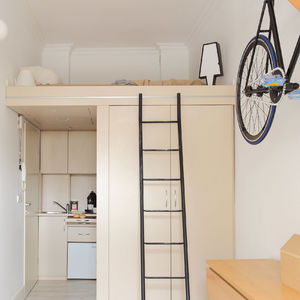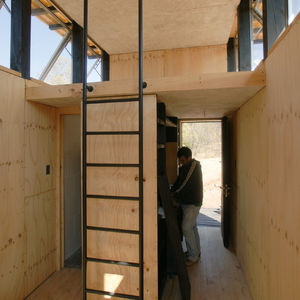Working with Contractors
Working
with contractors can be one of the most nerve-racking or satisfying parts of project
A bad contractor can make your life a nightmare, while the right contractor can
make your life much easier and more profitable.
How
do you know the difference? Listed below is a checklist of questions that may
help you:
1.
How long have you been
in this business? Opening the conversation about your contractor's experience
can give you all sorts of insight into his or her track record. Experience
matters in this business.
2.
Would you mind starting
on a smaller project? If you're on the fence but leaning toward the contractor,
we suggest giving him or her a smaller project to complete before you ask them
to build the entire project
3.
Can I see your
certificates? This should include everything -- license, insurance, etc. If
he or she can't produce the documents at short notice, it's time to move on.
4.
Have you worked in this
county/city/neighborhood before? Not only can code requirements vary from
county to county and city to city, but even different neighborhoods have
different rules for what can and can't be done construction-wise. Live in a
historic neighborhood? There may be some squawking about that new carport. Make
sure your contractor knows how to navigate that.
5.
What are the terms of
payment? It's not the best practice to pay for a job upfront, so make sure the
terms are clearly stated before you start, and you aren't surprised by a
request for giant check the day construction starts.
6.
What hours do you
typically work? This matters especially in neighborhoods, where those living
nearby -- or even you, if it's your house -- may be inconvenienced by odd-hours
hammering and sawing. Make sure the contractor's hours are appropriate, and
that the crew is actually working during them.
7.
What's your storage
plan? Theft at construction sites is not uncommon. Expensive equipment can
disappear if left out overnight. Make sure the contractor knows that you expect
tools to be locked up or taken home overnight, and help accommodate those
requests with a locked room or even a temporary storage shed, if necessary.
8.
What are your warranty
terms? Most contractors offer a warranty, in addition to any warranties on
materials used. Make sure you get that in writing, and copies of material
warranties, before construction begins.
9.
Do you use
subcontractors? Most general contractors won't have a pro plumber on his or her
staff, so others will be brought in to take care of specialty pieces of the
project. Make sure you know who those are and the budgetary expectations that
go along with that so you're not facing an additional bill from another
contractor.
10.
Can I see your
references? It's possible you've already gotten good word-of-mouth before you
even interview the contractor, but it never hurts to see a list from the
contractor. Make some calls and drive by the projects unannounced while they're
working -- how the crew is going about its business -- are they hard at work or
lollygagging? -- can give you great insight.
11.
Have you had any
disciplinary action filed in the past? This is a tough question, and not one to
ask flippantly or unkindly. You're just trying to find facts. Another route
would be to consult your state's courts archive for lawsuits filed against the
company or individual contractor.
12.
How do you communicate
with your customers? Setting a reasonable expectation of how often you should
be hearing from the contractor will keep you from freaking out if you go a
couple of days without an e-mail.
13.
How many projects do you
have going right now? No one wants to play second-fiddle, much less fifth or
sixth fiddle. If you feel like you're not going to be a priority, it might pay
to find someone who will make you feel like one.
14.
How do we settle
disputes? Making sure you know how to properly address problems or concerns is
one of the most important steps. You want to make sure you're following
procedures, especially if you think the contractor is not. If nothing else it
will make for peace of mind during the stressful process, knowing you have an
agreed-to avenue if there is a dispute.
15.
Do you have any
questions for ME?





























